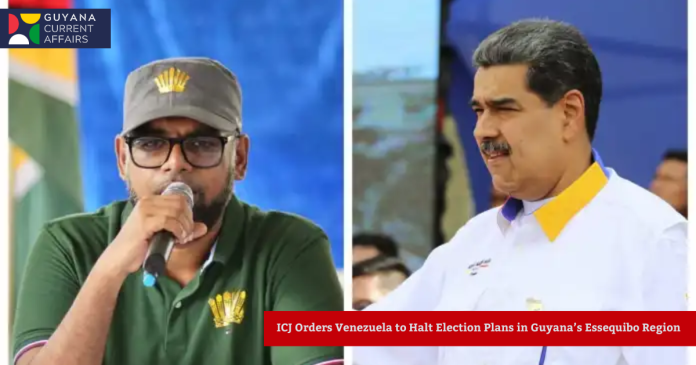The International Court of Justice (ICJ), the United Nations’ top judicial body, has issued a decisive order instructing Venezuela to refrain from conducting or preparing to conduct elections in Guyana’s Essequibo region, a territory rich in natural resources and the subject of a longstanding border dispute between the two South American countries.
The order, delivered on May 1, comes in response to Guyana’s urgent request after Venezuela announced plans to hold elections on May 25 for a governor and legislative council in what it calls “Guayana Esequiba State.” The ICJ’s majority ruling reaffirmed earlier provisional measures, emphasizing that, pending a final decision in the ongoing case, Venezuela must not proceed with any electoral activities in the disputed territory, which Guyana currently administers and controls.
Guyana’s President Irfaan Ali welcomed the ruling, declaring it a victory for international law and for Guyana’s sovereignty. “Once again, Guyana’s position has prevailed. Once again, it has been demonstrated that Guyana’s position accords with international law,” President Ali stated.
The Essequibo region, comprising nearly two-thirds of Guyana’s landmass, is home to vast reserves of gold, diamonds, timber, and significant offshore oil deposits. The border dispute dates back to an 1899 arbitral award that established the boundary, a decision Guyana maintains is valid, while Venezuela contests its legitimacy.
Tensions have escalated in recent years, with Venezuela holding a referendum in 2023 claiming support for annexing Essequibo and subsequently announcing the creation of a new state administration for the region. The ICJ had previously ordered both nations to avoid actions that could alter the status quo or worsen the dispute.
Despite the court’s clear directive, there has been no official response from Venezuelan authorities regarding compliance. The government of Guyana has called on Venezuela to respect the ICJ’s legally binding order and to refrain from any actions that could undermine peace and security in the region.
The substantive case over the validity of the 1899 arbitral award remains before the ICJ, with both countries and the international community watching closely as the situation develops.


